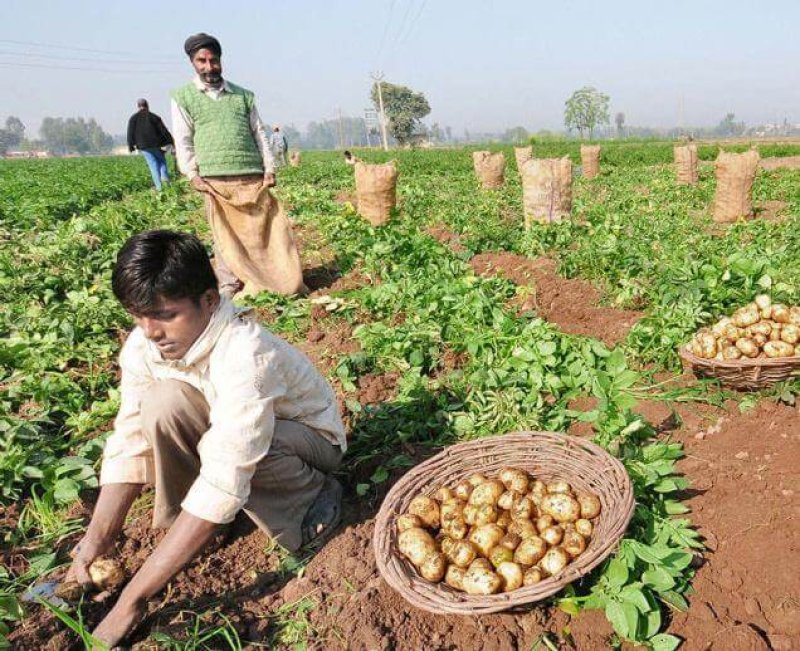Bangladesh’s agriculture sector is mainly comprised of smallholder farmers … who farm on plots smaller than 1.5 acres. Managing harvest loss is crucial for these farmers, and late blight is a serious contributor to their losses. The disease, responsible for the historic Irish potato famine, is a problem for potato growers across the globe. Currently, their only line of defense against the disease is heavy fungicide use.
[A Feed the Future partnership that recently launched in the Bangladeshi capital of Dhaka] aims to battle late blight head-on through the introduction of a disease-resistant potato. It is a collaborative effort between Michigan State University, the University of Minnesota, the University of Idaho, the Bangladesh Agricultural Research Institute and the J.R. Simplot Company, an American industry leader in food technologies based in Boise, Idaho.
…
For farmers across Bangladesh … the resistant potato variety cannot come fast enough. They’ve seen firsthand how BT eggplant, a pest-resistant variety introduced in Bangladesh two years ago, has improved the lives of their neighbors. A late blight resistant potato could mean a 25 percent savings in fungicide costs alone, making a dramatic impact in the daily life of farmers’ families – and achieving the partnership’s goal.
Editor’s note: Feed the Future is the US Government’s global hunger and food security initiative
Read full, original post: Potato Partnership Helps Farmers Fight Late Blight































